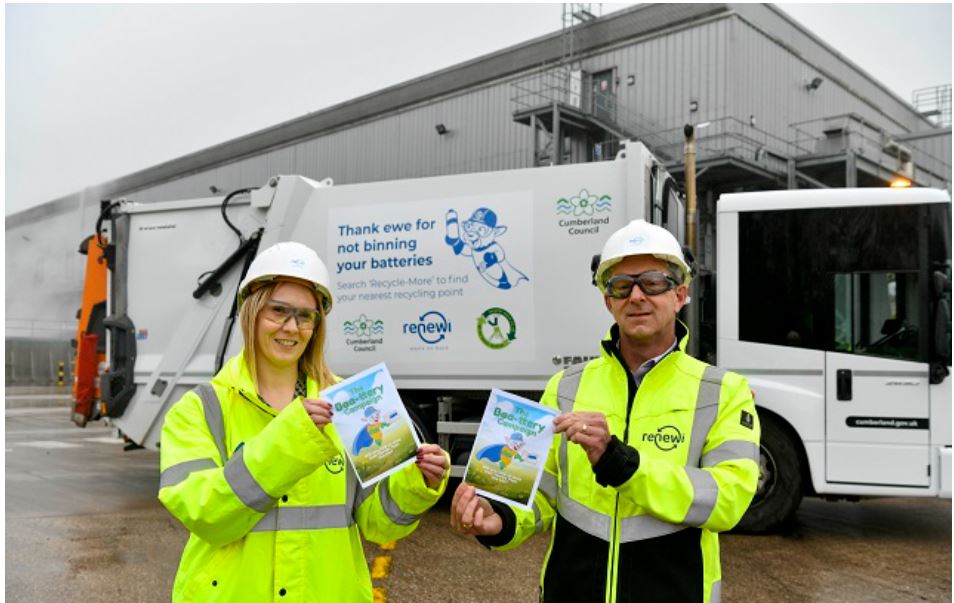Proposals to address a discrepancy in the definition of portable batteries, which is said to be causing a disproportionate amount of the UKs battery recycling obligation to be met by lead acid batteries, were published yesterday (August 14) by the government.
And, the government has also highlighted the need for collections of other chemistries of waste battery to significantly increase if the UK is to meet its mandatory EU battery recycling targets, while acknowledging that the cost of doing so may increase for some producers.

Portable batteries are the only category to which a recycling target has been attached, and in the UK are classified as any battery which is sealed, can be hand-carried without difficulty and is neither for automotive nor industrial purposes.
Battery recyclers have long argued that as they are often unaware of the original use of some lead acid batteries, it is impossible to determine if they fall into the industrial or portable classification (see letsrecycle.com story). As a result, many are reported as portable, inflating the number of lead acid batteries that are counted toward recycling targets compared to the amount placed on the market by producers.
Under the proposals, which were disclosed jointly by Defra, BIS, the Environment Agency and the Welsh, Scottish and Northern Irish administrations, batteries will only be classed as portable if they fall under a suggested 3kg threshold- unlike the existing definition in which they are required to be hand-carriable to qualify.
In its consultation notes on the planned changes the government commented that they should remove the grey area around portable batteries, and improve the credibility and consistency of the data reported to the European Commission under the Batteries Directive.
Obligation
Should the plans be approved, the effect will be that the UKs battery recycling obligation will likely fall, as fewer lead acid batteries will be placed in the portable category, meaning that for some battery producers, the cost to meet their recycling obligation is likely to rise.
The government anticipates that compliance costs could rise from around 900 per tonne to 1400 per tonne for some producers.
But, it also acknowledges that there will need to be a significant increase in the collection and recycling of other chemistries of portable batteries if the UK is to meet its 2016 EU recycling target, with lead acid batteries making up 86% of the waste portable batteries collected in 2012, but comprising only 8% of those put onto the market in the same period.
Proposals
Mike Green, G&P Batteries
Mike Green, managing director of battery recycling firm G&P Batteries commented that the proposals need to be backed up by a consistent approach from producers in the classification of new batteries going onto the market.
He said: We welcome the proposals, anything that in principal aids the problem we are very keen on that. It will certainly help, but not entirely solve the problem on its own. There are two sides: the guidance and how we identify portable batteries, but the other side is what producers put onto the market.
We hope the Agency is also looking to help producers to define their products accurately so we have a solution from both sides. The 3kg threshold is in line with other EU Member States, but the main thing I am concerned about is ensuring producers and recyclers apply the same definition and this will help to do that.
Valpak
Adrian Hawkes, policy director of producer compliance scheme Valpak, welcomed the publication of the proposals, adding that they appeared to go ‘a long way to address the discrepancy
He said: “It is difficult to say whether these proposals will fully address the problem, but they are certainly in the right direction and will go a long way to getting the situation back in balance. We have been working with the government and agencies on this issue for some time and are pleased to see steps being taken.
“Some producers will see a significant reduction in their obligations and costs or be excluded from portable batteries entirely, but some will see an increase. The way the government has proposed to bring this in means that it will gradually take effect between now and 2016 and so any increase will be phased in. I believe that most responsible producers would prefer to have the current unrealistic situation addressed sooner rather than later as if it was left unresolved the costs could be far higher in future years.
Related Links
“I think that under these proposals the 2016 target is still going to be a challenge, but there is sufficient time to drive up other collections to meet the gap.”
The government has told recyclers and producers of batteries that guidance on the new definition which comes into effect in January 2014 – will be published in October 2013. Stakeholders have been asked to comment on the proposals, including whether the threshold for portable batteries should be set at 2kg, 3kg or 4kg.









Subscribe for free